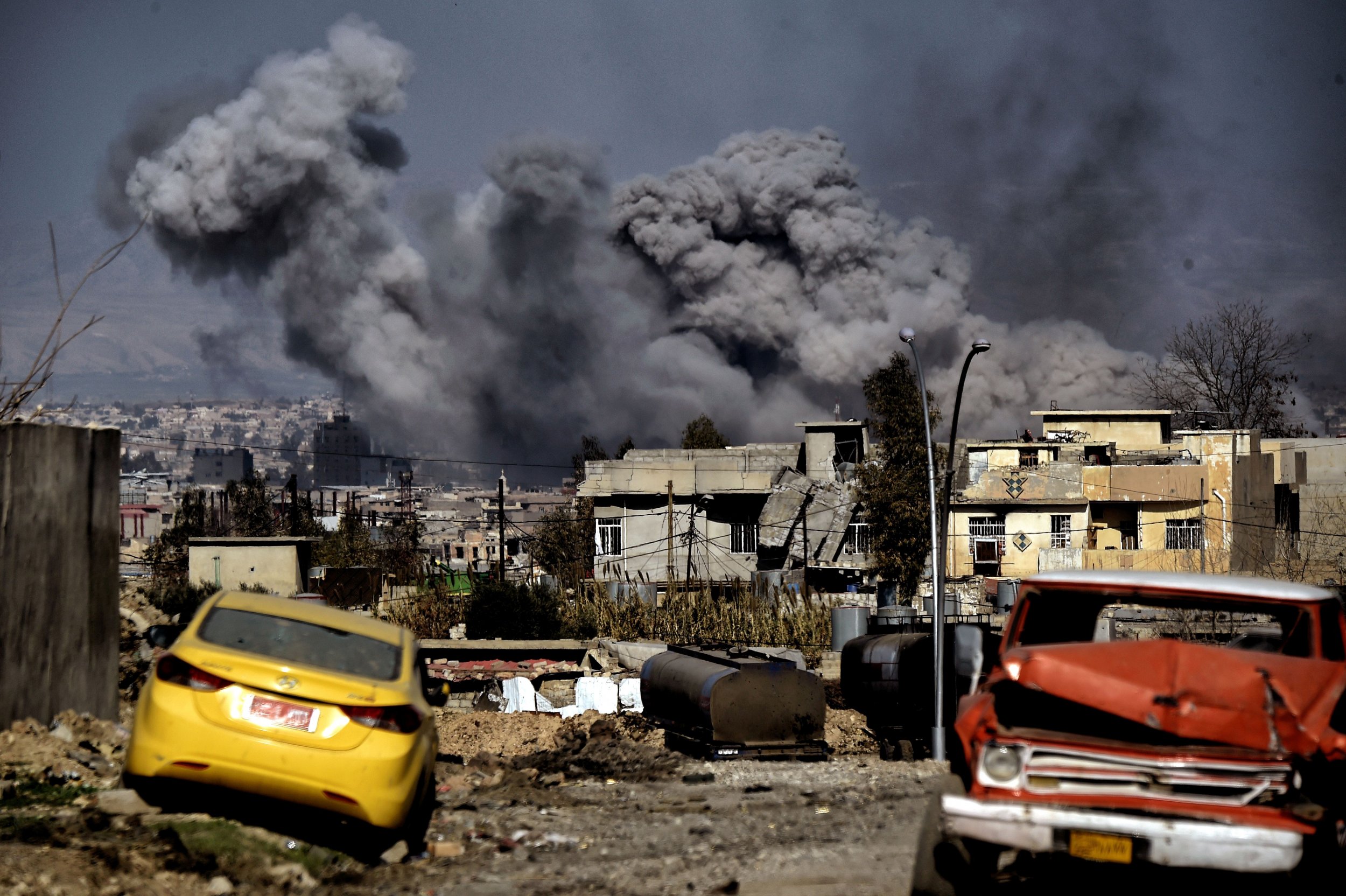
The number of civilians killed by the U.S.-led coalition's campaign against the Islamic State militant group (ISIS) in the northern Iraqi city of Mosul was almost ten times higher than the coalition claims, a new investigation has found.
According to an Associated Press count, which cited the reports of grave diggers, morgue workers and volunteers, between 9,000 and 11,000 Mosul residents were killed in the nine-month battle to liberate the city that ISIS held for three years.
Of those killed, Iraqi or coalition forces were responsible for at least 3,200 civilian deaths in airstrikes or ground fire conducted from the beginning of the offensive in October 2016 to July 2017. The coalition says it is responsible for only 326 of the deaths, but also claims that it does not have adequate resources on the ground to investigate the total number of deaths.
The coalition did not respond to a Newsweek request for comment, but spokesman Colonel Thomas Veale told the Associated Press that it was not fair to criticize "inadvertent casualties" when the coalition was battling a radical Islamist group that had beheaded, tortured and imprisoned the civilians under its authority.
"Without the Coalition's air and ground campaign against ISIS, there would have inevitably been additional years, if not decades of suffering and needless death and mutilation in Syria and Iraq at the hands of terrorists who lack any ethical or moral standards," he said.
Iraqi Prime Minister Haider al-Abadi says that only 1,260 civilians were killed in the battle for the city, higher than the U.S.-led coalition's toll but thousands lower than the Associated Press investigation alleges.
President Donald Trump gave his commanders more authority to accelerate the campaign against ISIS after his January 20 inauguration, and to call in strikes with fewer procedures for them to be signed off.
The decision, coupled with Secretary of Defense James Mattis vowing a change in strategy from encirclement to annihilation, led to a dramatic increase in the munitions dropped on the city. Many of the civilian deaths were caused by injuries sustained from strikes, such as shrapnel wounds or, worse, being "blown to pieces," according to morgue documents seen by the Associated Press.
In one particular case, the U.S.-led coalition conducted a strike on western Mosul that killed more than 10 civilians. The coalition claimed that ISIS had placed booby traps in buildings to maximize the threat to civilians if the coalition attacked. Throughout the campaign, the coalition criticized the militant group for using Mosul's civilians as human shields.

But the number of those killed from the first half of the battle for Mosul, and the second half that brought ISIS's rule to an end show a major increase in deaths.
From October 17 to February 19, the coalition or Iraqi forces caused at least 576 deaths. Between February 19 and mid-July, they caused almost 2,400 deaths, more than four times as many as the previous period.
The tolls, gathered from information provided by Amnesty International, Iraq Body Count and a U.N. report, exclude ISIS fighters killed in battle, and the civilians that ISIS killed in Mosul and left in mass graves around the city.
Mosul served as a home for more than a million civilians before ISIS overran the city and before the large-scale offensive to wrest it back from the militant group. Hundreds of thousands fled the city, finding shelter in refugee camps in the surrounding region, but many remained trapped as the U.S.-led coalition and the Iraqi military bombarded the city while ISIS made its last stand.
The loss of Mosul dealt a killer blow to the group's state project. Mosul served as the largest city under its control, and the place where its leader Abu Bakr al-Baghdadi declared the creation of its self-declared caliphate that straddled the Iraqi-Syrian border.
Uncommon Knowledge
Newsweek is committed to challenging conventional wisdom and finding connections in the search for common ground.
Newsweek is committed to challenging conventional wisdom and finding connections in the search for common ground.
About the writer
Jack is International Security and Terrorism Correspondent for Newsweek.
Email: j.moore@newsweek.com
Encrypted email: jfxm@protonmail.com
Available on Whatsapp, Signal, Wickr, Telegram, Viber.
Twitter: @JFXM
Instagram: Read more





